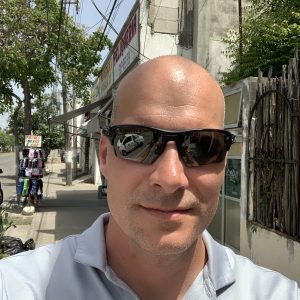“Today’s media landscape is larger and more diverse than ever before, with youth having access to an unprecedented volume of digital content across numerous devices, including smartphones, tablets, computers, laptops, and gaming consoles,” wrote Jacqueline Nesi in a 2020 article for the North Carolina Medical Journal. “Social media represents a central component of this landscape.”
In his new book Digital Madness, Nicholas Karadaras, Ph.D. describes the toxic impact of this central component, especially on teenagers and young adults.
“Research shows that the empty, sedentary, addicting, isolating, and self-loathing lifestyle created by Big Tech drives depression and hopelessness,” he writes. “Yet the more depressed and empty we feel, the more we’re driven to escape those feelings with more of the digital drug that’s driving the problem to begin with—a classic addiction catch-22.”
Because of this defining toxic impact, author and psychology professor Jean Twenge even dubbed the generation following after the millennials “iGen.” In her influential 2017 study iGen: Why Today’s Super-Connected Kids Are Growing Up Less Rebellious, More Tolerant, Less Happy–and Completely Unprepared for Adulthood–and What That Means for the Rest of Us, Twenge describes members of the iGen cohort as “born in 1995 and later, they grew up with cell phones, had an Instagram page before they started high school, and do not remember a time before the Internet.”
Twenge identified a number of defining trends for “iGen’ers, some of which are causing severe mental health issues for many members of this cohort. “They are at the forefront of the worst mental health crisis in decades, with rates of teen depression and suicide skyrocketing since 2011,” Twenge writes in iGen.
In his previous book Glow Kids, Dr. Karadaras described what excessive screen time does to children, calling it “digital heroin.” Karadaras feels “we need to address Big Tech and the corrosive social media that is driving our mental health crisis—not just the abovementioned tech addiction and the empty depression that accompanies it,” as he writes in Digital Madness.
“The constant immersion in polarizing social media platforms has changed the architecture of our brains and the way we process information in a way that’s inherently pathological and unhealthy and undermines any potential for rational thinking.”
At the end of Digital Madness, Dr. Karadaras offers a remedy. He suggests that classical philosophy can encourage resilience and critical thinking, as well as promote the pursuit of genuine purpose in our lives.
Instilling genuine purpose in the lives of our clients is also an important therapeutic goal at Turning Winds. Our treatment program addresses the historic rates of dysphoria and mental health disorders among young people with stressors including the threat of school violence, family separation, financial pressures and debt, political angst, eco-anxiety, school performance pressures, and other real and perceived threats are making it harder for young people to feel safe.
We, too, feel that omnipresent electronic devices and social media make it difficult for today’s teens to avoid negative headlines, bullying, and the artificial realities of curated lifestyles.
“Kids today are so bombarded with societal expectations, the internet, social media, and so much of the demands that society puts on them,” says Turning Winds therapist Kim Sparks, LCPC. Parents bring their teens to our remote place in Montana “to make them kind of disconnect and have them only focus on themselves.”
When parents come up here, they are relieved to see the healthy setting their kids will experience and that they really get a focus on just themselves. “They’re not going to be distracted with everything out there; phones, internet, television, social media, even the pressures of school and fitting in,” says Sparks. “Most parents feel this is a great privilege for their kids to be up here. Not many people get to come to a beautiful setting like this and really just focus on themselves.”
Turning Winds provides a therapeutic respite from a dysfunctional cultural experience,
reconnection with core human values, and the holistic education and therapeutic alliance
needed to perceive and practice intentional living.
Contact us online for more information, or call us at 800-845-1380. If your call isn’t answered personally, one of us will get back to you as soon as possible.









